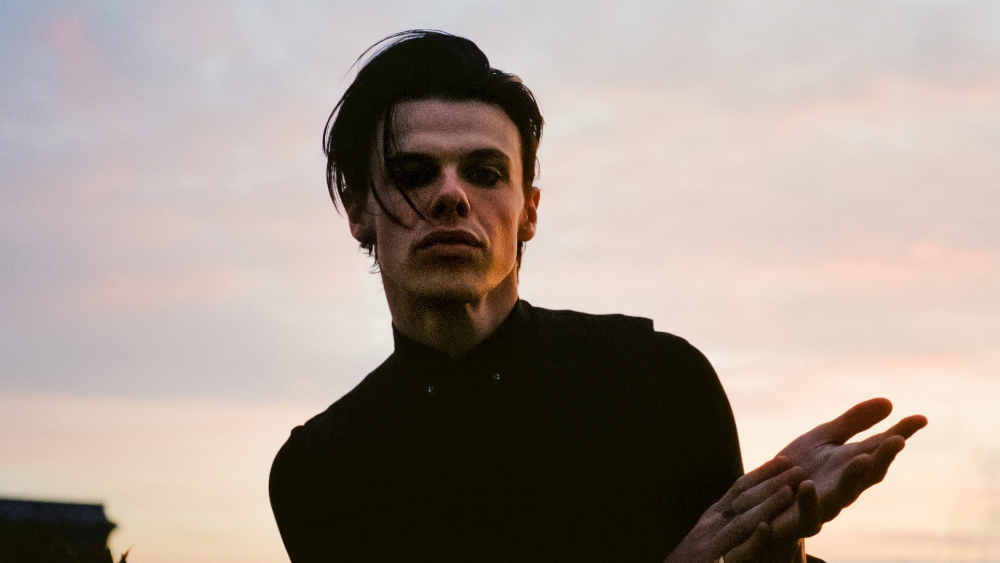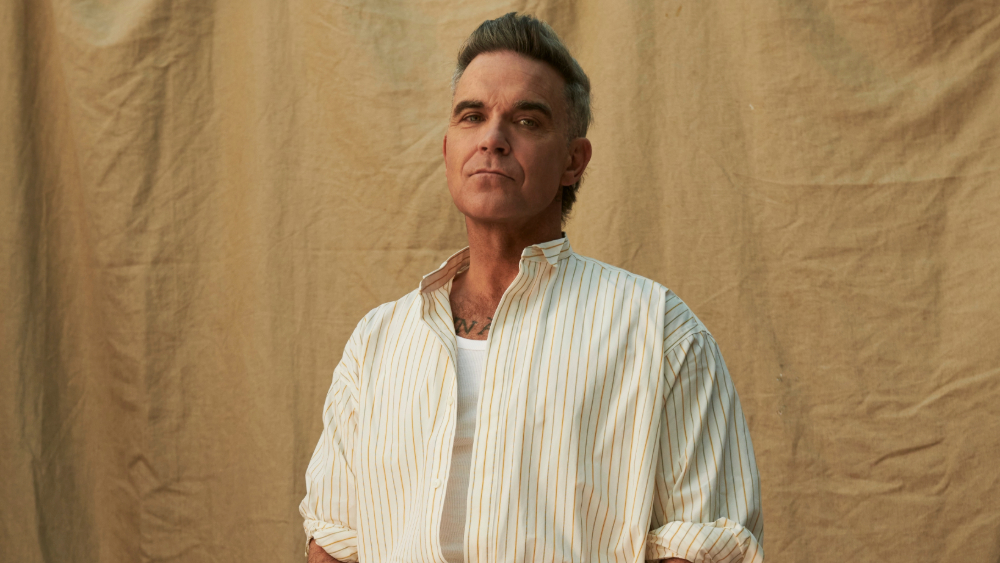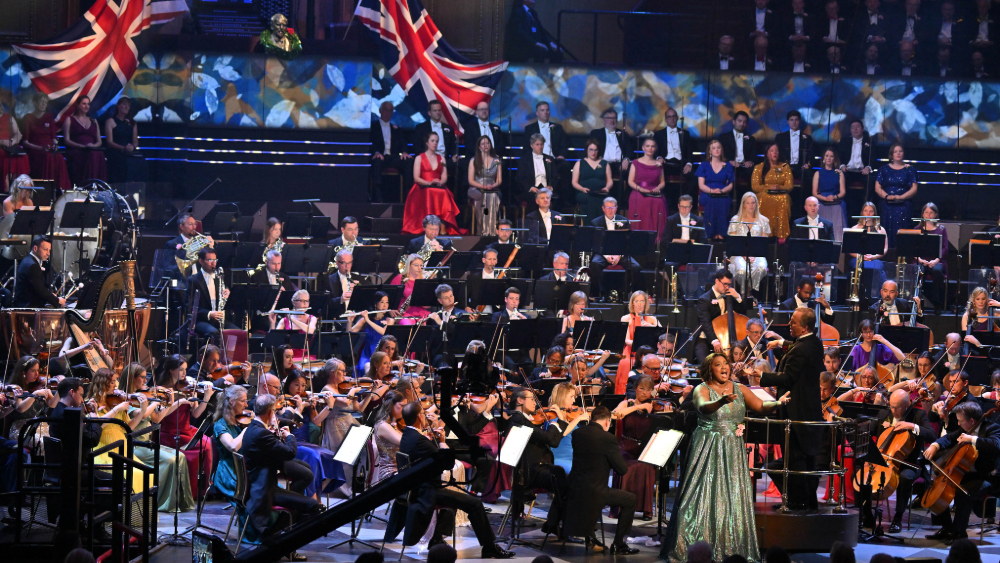It’s probably fair to say that it isn’t standard practice to open a conversation with an artist by describing their acclaimed album as ‘frustrating’. But Circumnavigating Georgia, the debut from Sans Soucis (real name Giulia Grispino), defies easy categorisation. Blending disparate genres and influences with deliberate fluidity, it resists tidy description — and that’s exactly what makes it so compelling.
Fortunately, Giulia is eloquent and philosophical about this challenge — or perhaps they’ve just been asked this question before. ‘OK, so I can tell you what I had in mind when I was trying to put everything together,' they tell M. ‘There’s an album by Beyoncé called Beyoncé, where she puts all sorts of genres in and it's just really out there — but it still sounds like Beyoncé.
‘With Circumnavigating Georgia, there are a lot of influences drawn from my upbringing: from the phase where I was just listening to a lot of R&B; bits of my Italian and Congolese heritage; my love for electronics. Producing the record was a very intuitive process for me. The only way I could describe Circumnavigating Georgia is alternative pop.’ That’s settled, then.
‘The name Sans Soucis reminds me that I need to break barriers, I need to be real.'
Raised predominantly by their paternal grandparents in a small village near Modena in northern Italy, Giulia’s first foray into music was suitably Italian.
‘As opera and classical music are such a huge part of Italian culture — not to mention having been born in the same city as Pavarotti — it felt like it was the only way to do music,’ they reflect. ‘I just really loved singing. I was really excited to go back to my grandpa and be like, "Nonno, I've got a new song for you, do you want to listen to it?" I never thought [it might be creatively inhibiting] until later on when I wanted to develop some more professional skills.’
Giulia’s grandparents have had a significant influence on their life, with their grandmother effectively ‘baptising’ them with the nickname that would become their on-stage moniker. Meaning ‘without worries’, Sans Soucis reflected Giulia’s bright, musical and inquisitive nature as a child. Years later, it was the obvious choice for their artist name.
‘It was like, “This is me now, this is what I want to present,” they continue. ‘The name Sans Soucis reminds me that I need to break barriers, I need to be real, I need to be as vulnerable as a child, because music is the space where I can do it.’
The decision to pursue music as a career came after Giulia moved to London aged 19. ‘Italy is a very academically driven country,’ they explain. ‘I thought if a doctor needs to go to university to be a doctor, then as a musician I should go to university too. Long story short, that's how I ended up in London.’
Bolstered by their natural talent as well as grant support from PRS Foundation’s Women Make Music Fund and the PPL Momentum Music Fund, Giulia was able to put their all into Circumnavigating Georgia, which arrived in October 2024. Seven months later, Giulia was standing on stage at The Ivors 2025 in London accepting an Ivor Novello Award for Best Contemporary Song for the album’s title track.
Speaking to them a couple of weeks after the ceremony, Giulia still hasn’t come down from cloud nine. ‘I was really shocked,’ they say about the accolade. ‘For me, the song represents what I always say is the synopsis of the whole record. The storyline is that I spent most of my life building a glorious theatre, which was a defence mechanism against a society that is really harsh and tries to marginalise.’
Do they think that’s why this track was highlighted by the Ivors judges? ‘The sentiment probably just caught some ears. Maybe some related to that experience of wanting to liberate themselves from a safety that isn’t really safety and try to be vulnerable.’
Marginalisation is a thread which runs through their life and music, from being of mixed heritage in a very conservative country (‘In Italy, a lot of us are trying to be visible enough to make sure that children know their lives matter. But I don't feel safe enough to do this [there]’) through to discovering their sexuality and identity — being ‘Black and queer’, as they put it.
‘That experience is something that I wanted to talk about,' they continue. ‘This song was one of the last I wrote for the album, so [by that point] I felt like I had all the messaging of the album in me. That's why every single verse sounds like, “Oh, yeah, this is about that section of the album, that's that section of the album...”. If you don't want to listen to the album [in its entirety], you can just listen to Circumnavigating Georgia.’
'After moving to the UK, I learned a lot about myself by doing music.'
But you should listen to the album. It stands as a complete work with Giulia’s voice as the constant, taking your hand as you wander through the narrow alleyways of Italy before being transported to the grittier multicultural panoramas of London. ‘After moving to the UK, I learned a lot about myself by doing music,’ Giulia explains. ‘I guess I had to be put in a space where I was an immigrant and felt really insecure about the way I expressed myself.’
Giulia really believes in challenging themselves, namely by stripping everything away and getting into an uncomfortable place for the sake of their art. Are they now at a stage where they hope their music and creative approach will help and inspire others?
‘No one is ever finished, and these things go hand in hand,’ they reply. ‘I do think there are moments where the percentage of your own soul-searching should be bigger than empowering other people, although music does that on its own. At this specific stage of life, I feel motivated to write about something bigger than myself. But that doesn't mean that it doesn't come from my experience.’
After being named among the latest participants of the PRS Foundation and Ben Wynter-founded initiative POWER UP, Giulia is wasting no time when it comes to building on the momentum generated by the success of Circumnavigating Georgia.
‘I’m finishing my second record for release next year, and I’m excited about that. But off the back of what we just said, I’m really just [focused on] rebuilding a community. I've been going to a film club and a book club; a dream circle; to protests and group gatherings. I'm going to do an MA in Gender Studies. I'm excited about how much we can do as people, together.’
This article features in the latest special edition of M Magazine, which you can read in full here.





